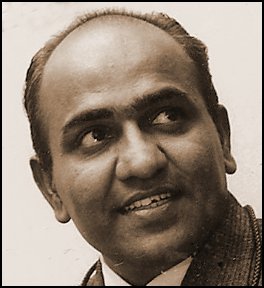
T.S. Nagarajan (b.1932) is a noted photojournalist whose works have been exhibited and published widely in India and abroad. After a stint with the Government of India as Director of the Photo Division in the Ministry of Information, for well over a decade Nagarajan devoted his life to photographing interiors of century-old homes in India, a self-funded project. This foray into what constitutes the Indianness of homes is, perhaps, his major work as a photojournalist.
Editor's note: This story is reproduced, with permission, from Mr. Nagarajan's not-for-sale book of his memories, A Pearl of Water on a Lotus Leaf &\; Other Memories, 2010.
My mother's brother, Uncle Ponnu, was a man apart: apart from good looks, apart from erudition, apart from any social life outside of his addiction to alcohol and the automotive world of the C. Perumal Chetty (CPC) Motor Service, where he worked as a bus conductor.
Low in stature and ungainly, he was a bachelor not by choice but by lack of choices. His face, which hinted of a hundred thousand hangovers down the drain, was heavy, eyes reddish and fierce like his body, which suffered from a congenital deformity. His hands were clubbed, bowed inwards, and the forearms markedly short. All this made him look grave and unfriendly.